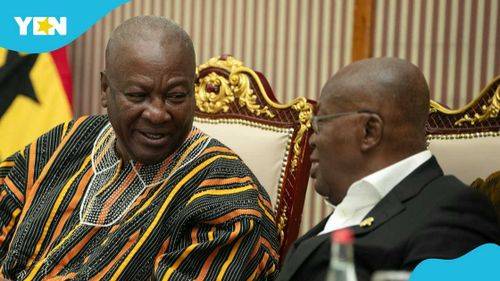President Mahama in the Dock over Abolition of Betting Tax
The betting industry has over the past few years gained much attention in Africa, with governments of most countries trying to explore ways of regulating the industry. Ghana is no exception, where the government has been trying to strike a balance between deriving maximum revenue from the gambling industry and ensuring that it is not being exploited by vulnerable groups. But one controversial action by the current immediate past President John Dramani Mahama in office has drawn most heat and criticisms – the abolition of betting tax.
In 2014, Mahama's government made a decision to abolish the 17.5% tax imposed on winnings from sports betting. This action was welcomed with mixed feelings, with some perceiving it as a welcome step to boost growth in the new industry, while others perceived it as a careless move that would have negative social consequences. Critics of the policy argue that removing the tax allowed gambling operators to profit at the expense of the state and social welfare schemes. This report examines the outrage over this decision and what the implications could have been for Ghana on a broad level.
The Betting Tax and Why It Happened
Before it was overturned, the 17.5% betting tax was put in place as a means to take in money from the burgeoning gaming industry. Betting and gaming enterprises had been successful in Ghana via the speedy improvement of cellular technology, which meant easy access to online gambling venues. These industries, whose operations were until then unregulated before the inception of the tax, posed before the government the problem of adequate regulation and imposition of tax. The betting duty was intended to have operators be a part of the country's financial well-being as well as address the challenge of the social impacts of gaming, particularly in vulnerable young persons.
Ghana, like many nations, has also been grappling with gambling issues. They involve gambling addiction, the risk of losing money, and increased foreign bookmaker penetration of the domestic market. The betting tax was one of the few tools in the government's arsenal available for addressing these problems at the same time that they were being used to generate revenue for public initiatives and social programs.
The Decision to Abolish the Betting Tax
In 2014, however, President Mahama's administration made a U-turn on the policy. The removal of the betting tax was done at a time when industry stakeholders, including betting operators, complained that the tax was too burdensome and was hindering the growth of the industry. Betting companies claimed that the tax was discouraging them from increasing their business, which in turn decreased the job opportunities for Ghanaians and the prospect of enhanced economic growth.
The government explained its action at the time as suggesting that the measure would result in a more competitive betting business, which would make it attractive to domestic as well as foreign investors. By repealing the tax, the government sought to attract a better business environment that would attract more players into the business, thus resulting in a greater number of employment created and foreign direct investment.
The Criticism of the Decision
Despite the justifications given by the Mahama administration, the removal of the betting tax has been widely criticized by various sections of the Ghanaian society. Economic experts, as well as social activists, argue that the removal of the tax was a regrettable action that hindered the country from controlling gambling. They argue that the gambling industry, if not regulated, can lead to social ailments like addiction, financial problems, and mental illness among the weakest ranks of society.
Critics of Mahama's action argue that while it may have been a temporary boost to the gambling industry, it did not take into account the long-term social effects of gambling that was not regulated. Others believed that without a tax, it would be an environment where illegal gambling dens could thrive, yet another way that put the citizens at risk.
Besides, the removal of the tax was at the cost of significant revenue that would have been used in public services and development initiatives. When the government was already facing budget deficits and financial pressure, critics argue that sacrificing the betting tax was a missed chance to get more revenue for the country's economic growth.
The Aftermath and Lessons Learned
Ever since the removal of the betting tax in subsequent years, controversy surrounding the policy has not run dry. While the betting sector has gone on to grow, with more firms taking their share, the social and economic effects of the policy choice have been and still remain a thorny issue. Calls for the return of the betting tax to the policy agenda have once again begun to surface, especially from civil society and proponents of the imposition of a lid on gambling as its ill effects on Ghana's youth.
The decision by President Mahama's administration to suspend the betting tax is, to a certain extent, reflective of a larger trend in policy towards giving priority to business interests above social issues. Nonetheless, the same strategy has served to emphasize the need to weigh economic progress against regulatory practices that safeguard marginal communities.
Conclusion
The abolishment of the betting tax under the President Mahama administration continues to be an item of contentious discussion in Ghana. Even though the change is maybe done to improve the performance of the betting industry, it has faced considerable criticism for the long-term social and economic implications. With the country struggling to cope with the rapid expansion of the betting industry, it is clear that the industry requires a better regulatory strategy to ensure gambling activities do not harm society. Whether the tax will come back again or not, only time will tell, but the lesson from this controversy teaches us the importance of balancing economic growth with social responsibility.




No comments yet
Be the first to share your thoughts!